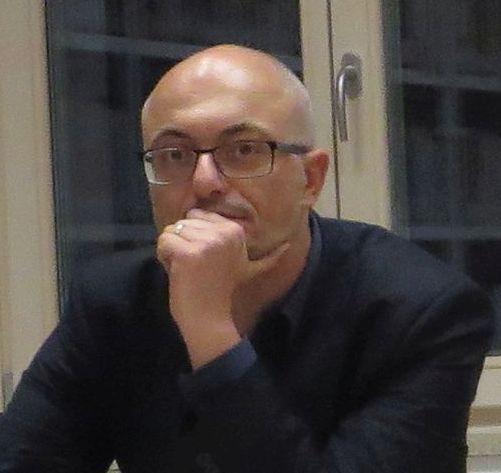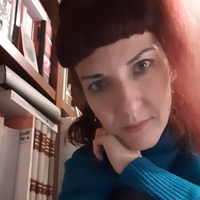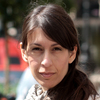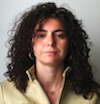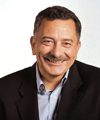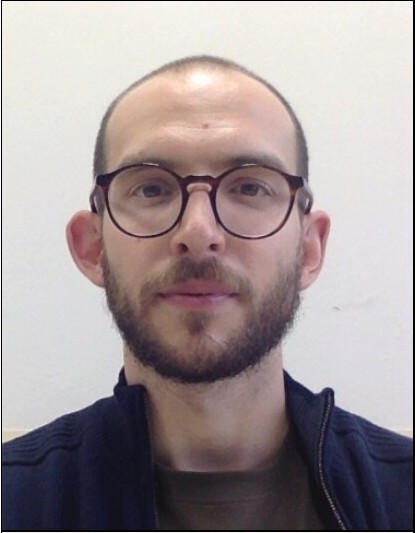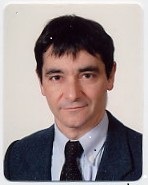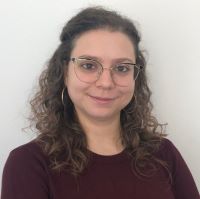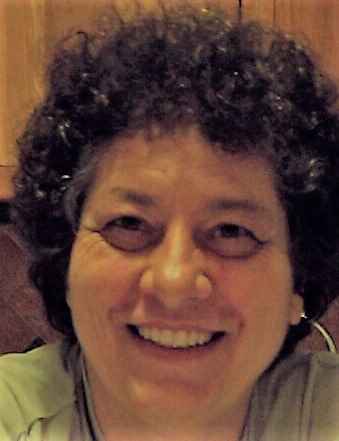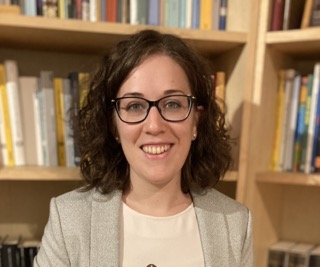Studying at the University of Verona
Here you can find information on the organisational aspects of the Programme, lecture timetables, learning activities and useful contact details for your time at the University, from enrolment to graduation.
Academic calendar
The academic calendar shows the deadlines and scheduled events that are relevant to students, teaching and technical-administrative staff of the University. Public holidays and University closures are also indicated. The academic year normally begins on 1 October each year and ends on 30 September of the following year.
Course calendar
The Academic Calendar sets out the degree programme lecture and exam timetables, as well as the relevant university closure dates..
| Period | From | To |
|---|---|---|
| 1 A | Sep 27, 2021 | Nov 6, 2021 |
| 1 B | Nov 15, 2021 | Jan 12, 2022 |
| 2 A | Feb 14, 2022 | Mar 26, 2022 |
| 2 B | Apr 4, 2022 | Jun 4, 2022 |
| Session | From | To |
|---|---|---|
| Sessione d'esame invernale | Jan 10, 2022 | Feb 12, 2022 |
| Sessione d'esame estiva | Jun 6, 2022 | Jul 23, 2022 |
| Sessione d'esame autunnale | Aug 29, 2022 | Sep 24, 2022 |
| Session | From | To |
|---|---|---|
| Sessione straordinaria (a.a. 2020/21) | Mar 28, 2022 | Apr 2, 2022 |
| Sessione estiva | Jul 11, 2022 | Jul 16, 2022 |
| Sessione autunnale | Nov 7, 2022 | Nov 12, 2022 |
| Sessione straordinaria | Mar 31, 2023 | Apr 6, 2023 |
| Period | From | To |
|---|---|---|
| Festività natalizie | Dec 24, 2021 | Jan 2, 2022 |
| Festività pasquali | Apr 15, 2022 | Apr 19, 2022 |
| Festività Santo Patrono di Verona | May 21, 2022 | May 21, 2022 |
| Chiusura estiva | Aug 15, 2022 | Aug 20, 2022 |
Exam calendar
Exam dates and rounds are managed by the relevant Culture and Civilisation Teaching and Student Services Unit.
To view all the exam sessions available, please use the Exam dashboard on ESSE3.
If you forgot your login details or have problems logging in, please contact the relevant IT HelpDesk, or check the login details recovery web page.
Academic staff
 giovanni.bernardini@univr.it
giovanni.bernardini@univr.it
 francesca.cecconi@univr.it
francesca.cecconi@univr.it
 monica.cristini@univr.it
monica.cristini@univr.it
 rosarita.cuccoli@univr.it
rosarita.cuccoli@univr.it
 giacomo.morbiato@univr.it
giacomo.morbiato@univr.it
 michele.pasqua@univr.it
michele.pasqua@univr.it
 valentina.romanzi@univr.it
valentina.romanzi@univr.it
 alberto.scandola@univr.it
alberto.scandola@univr.it
 antonella.toffali@univr.it
antonella.toffali@univr.it
 elena.zilotti@univr.it
elena.zilotti@univr.it
Study Plan
The Study Plan includes all modules, teaching and learning activities that each student will need to undertake during their time at the University.
Please select your Study Plan based on your enrollment year.
1° Year
| Modules | Credits | TAF | SSD |
|---|
1 MODULE BETWEEN THE FOLLOWING1 MODULE AMONG THE FOLLOWING2° Year activated in the A.Y. 2022/2023
| Modules | Credits | TAF | SSD |
|---|
1 MODULE AMONG THE FOLLOWING1 MODULE AMONG THE FOLLOWING| Modules | Credits | TAF | SSD |
|---|
1 MODULE BETWEEN THE FOLLOWING1 MODULE AMONG THE FOLLOWING| Modules | Credits | TAF | SSD |
|---|
1 MODULE AMONG THE FOLLOWING1 MODULE AMONG THE FOLLOWING| Modules | Credits | TAF | SSD |
|---|
Legend | Type of training activity (TTA)
TAF (Type of Educational Activity) All courses and activities are classified into different types of educational activities, indicated by a letter.
Type D and Type F activities
COMPETENZE TRASVERSALI
| years | Modules | TAF | Teacher |
|---|---|---|---|
| 1° 2° | Call for the poetic choir of the canto XXVI of the Purgatory | F |
Nicola Pasqualicchio
(Coordinator)
|
| 1° 2° | Series of conferences Don Mazza University College | F |
Alessandra Zangrandi
(Coordinator)
|
| 1° 2° | Dante on stage. Meetings with directors, actors, choreographers | F |
Nicola Pasqualicchio
(Coordinator)
|
| 1° 2° | Girolamo Fracastoro. 500 years from the beginning of modern pathology | F |
Carlo Chiurco
(Coordinator)
|
| 1° 2° | Playlab - soft skills workshops | F |
Simona Brunetti
(Coordinator)
|
| 1° 2° | Theatre with wheels | F |
Simona Brunetti
(Coordinator)
|
| years | Modules | TAF | Teacher |
|---|---|---|---|
| 1° 2° | Future's Festival | F |
Alessandra Zangrandi
(Coordinator)
|
| years | Modules | TAF | Teacher |
|---|---|---|---|
| 1° 2° | Series of conferences Don Mazza University College | F |
Alessandra Zangrandi
(Coordinator)
|
| 1° 2° | Dante on stage. Meetings with directors, actors, choreographers | F |
Nicola Pasqualicchio
(Coordinator)
|
| 1° 2° | International Workshop Mothers in the Time of the Church Fathers: Maternal Thought and Maternal Practice between Normative Representations and Individual Transgressions | F |
Giulia Pedrucci
(Coordinator)
|
| 1° 2° | Playlab - soft skills workshops | F |
Simona Brunetti
(Coordinator)
|
| 1° 2° | Recording the theatrical ephemeral | F |
Simona Brunetti
(Coordinator)
|
| 1° 2° | Theatre with wheels | F |
Simona Brunetti
(Coordinator)
|
| years | Modules | TAF | Teacher |
|---|---|---|---|
| 1° 2° | "Common world. 2022 Arendt Seminars | F |
Ilaria Possenti
(Coordinator)
|
| 1° 2° | Gnoseology and Metaphysics Workshop | F |
Davide Poggi
(Coordinator)
|
| years | Modules | TAF | Teacher |
|---|---|---|---|
| 1° 2° | "Common world. 2022 Arendt Seminars | F |
Ilaria Possenti
(Coordinator)
|
| 1° 2° | Gnoseology and Metaphysics Workshop | F |
Davide Poggi
(Coordinator)
|
Political geography and economics GIO (m) (2022/2023)
Teaching code
4S02372
Academic staff
Coordinator
Credits
6
Also offered in courses:
- Political and Economical Geography of the course Master’s degree in Historical Studies (interuniversity)
Language
Italian
Scientific Disciplinary Sector (SSD)
M-GGR/02 - ECONOMIC AND POLITICAL GEOGRAPHY
Period
1 A, 1 B
Learning objectives
Every fact or phenomenon is placed in space and time; it derives from causes, produces effects and political, as well as social and economic relations. The course, inspired by the strong geo-economic and geo-political interdependencies between the different areas of the globe, aims at providing the theoretical and methodological bases to analyse the complex mosaic whose result is the current organization of space. At the end of the course, students will be able to analyze and critically read, in a geographical perspective, key phenomena of contemporary scenario, with reference to the following issues: the changing pace of globalization, the role of the global economic players, the spatial organization of production in a trans-scalar perspective, the environmental problems and (some) geo-political scenarios of contemporary world.
Prerequisites and basic notions
Basic knowledge of Economic Geography
Program
The main concepts, topics and methods of Economic and Political Geography
Economic globalization and recent trends
Transnational networks and global governance
Local development
The new geography of production: reshoring and Industry 4.0
Gentrification and urban policies
Sustainable development
Geography and sustainable policies
Political Geography and economic resources
Changing geopolitical scenarios: Europe and the rest of World
Case studies analysis
Bibliography
Didactic methods
Class teaching to introduce the main theoretical concepts and the methods of spatial analysis; discussion of case studies. The slides of the lessons and further material will be available on the Moodle platform.
Reference books
Bignante E., Celata F., Vanolo A., Geografie Dello Sviluppo, Una prospettiva critica e globale, UTET Università, Milano, 2022.
Lizza G., Gli orizzonti della nuova geopolitica, Utet Università, Milano, 2021
Learning assessment procedures
Written examination with six open questions on the topics of the cours. The exam will evaluate the knowledge of the course topics and the competencies of the methods and scientific language of Economic and Political Geography.
Evaluation criteria
Up to a maximum of five points for each answer. The evaluation of the exam is expressed in thirties.
Criteria for the composition of the final grade
The final mark is made up of the sum of the six answers.
Exam language
Italiano
Career prospects
Module/Programme news
News for students
There you will find information, resources and services useful during your time at the University (Student’s exam record, your study plan on ESSE3, Distance Learning courses, university email account, office forms, administrative procedures, etc.). You can log into MyUnivr with your GIA login details: only in this way will you be able to receive notification of all the notices from your teachers and your secretariat via email and also via the Univr app.
Graduation
List of thesis proposals
| theses proposals | Research area |
|---|---|
| Laureandi Editoria e Giornalismo: vademecum | Various topics |
| TESI SU COMUNICAZIONE DELL’AGROALIMENTARE | Various topics |
Gestione carriere
Linguistic training CLA
Student mentoring
Student login and resources
Modalità e sedi di frequenza
La frequenza non è obbligatoria.
Maggiori dettagli in merito all'obbligo di frequenza vengono riportati nel Regolamento del corso di studio disponibile alla voce Regolamenti nel menu Il Corso. Anche se il regolamento non prevede un obbligo specifico, verifica le indicazioni previste dal singolo docente per ciascun insegnamento o per eventuali laboratori e/o tirocinio.
È consentita l'iscrizione a tempo parziale. Per saperne di più consulta la pagina Possibilità di iscrizione Part time.
Le sedi di svolgimento delle lezioni e degli esami sono le seguenti:
- Polo Zanotto (vicino si trova il Palazzo di Lettere)
- Palazzo ex Economia
- Polo Santa Marta
- Istituto ex Orsoline
- Palazzo Zorzi (Lungadige Porta Vittoria, 17 - 37129 Verona)

 +39 045802 8409
+39 045802 8409

